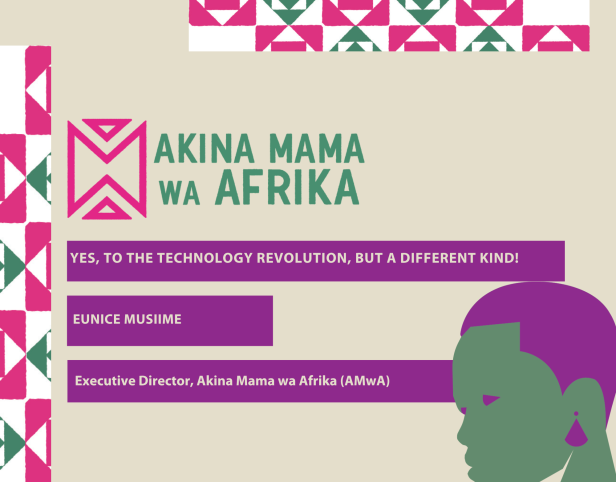
Technology has been primed as an accelerator to achieving gender equality among other development goals. It has been argued that for populations that are historically marginalized, technology holds the promise of bridging deep and wide chasms through bringing the privileges that are enjoyed by a few to everyone. In a 2020, UN Women discussion paper titled ‘The Digital Revolution: Implications for Gender Equality and Women’s Rights after Beijing’, the authors posit that the digital revolution brings immense potential to improve social, economic and political outcomes for women.
Hence, for 2023, the theme for International Women’s Day, which is commemorated every 8th of March, was, “DigitALL: Innovation and technology for gender equality”. This theme was aligned with the priority theme for the 67th Session of the Commission on the Status of Women (CSW-67) “Innovation and technological change, and education in the digital age for achieving gender equality and the empowerment of all women and girls”.
But the UN Women report, referenced also notes that the digital revolution is still exclusionary for the majority, especially, women and marginalized groups; largely, women and girls remain on the peripheral of this revolution that is dominated, controlled and protected by a handful of majorly big tech, white, male, western monopolies and/or corporations or authoritarian governments.
Their lack of inclusion, by contrast, comes with massive costs: as per UN Women’s Gender Snapshot 2022 report, which states that women’s exclusion from the digital world has shaved $1 trillion from the gross domestic product of low- and middle-income countries in the last decade—a loss that will grow to $1.5 trillion by 2025 without action.
The 2020 UN Women report referenced and a number of feminists, note that current hurdles include inherent biases and socio-cultural norms located within existing patriarchal power structures that curtail women and girls’ ability to benefit from the opportunities offered by the digital revolution. Hence, the violence, discrimination and exclusion that happens offline is replicated in online spaces.
Further, the current hurdles to women and girl’s meaningful inclusion in the digital revolution are further exemplified by Catherine Cheney in her article ‘How donors can protect workers from exploitation in the digital economy.’ Cheney shares how technology, which has given rise to the gig economy, provides on-demand work through apps or websites. Accordingly, in order to create the powerful artificial intelligence chatbot, ChatGPT, OpenAI outsourced data labeling to Kenyan workers. Their employer, a company called ‘Sama’, employs workers in Kenya, Uganda, and India to build training data for Silicon Valley clients, stating that it creates “an ethical AI supply chain.” Yet, it paid workers a meagre $2 a day to label text snippets from the darkest corners of the internet — including graphic detail of torture, rape, and murder — in order to prevent the ChatGPT app from responding with violent, racist, or sexist language.
These working conditions point to some of the dangers that come with ‘digital microwork,’ which breaks up technical work into thousands of tasks that can be completed by remote workers. The shift underway is a form of ‘digital colonialism,’ as articulated in a recent report by IT for Change, an NGO based in Bengaluru, India.
So what then needs to be done? We need to beg the critical questions: What makes technology liberating, and for whom, and under what circumstances? How can we make the internet safe? What are possible socially and ecologically sustainable models for these technologies? How do we have more global south-developed apps? And how do we develop collaborative and re-distributive technologies that will benefit all?
Foremost, transforming developer-user dynamics to return autonomy to those who inhabit these technologies cannot be understated. These technologies also need to create human centered/humanist ways of managing our information, communication and memory-related needs. Technological companies further need to stop the exploitation of women as the main source of cheap and slave labor throughout all the value chains that includes: device recycling, quality control, consumer service, and software development.
So yes to a technology revolution, but one that is people centered as opposed to entrenching the same exploitative, exclusive, oppressive, discriminative systems that marginalize women and girls.

